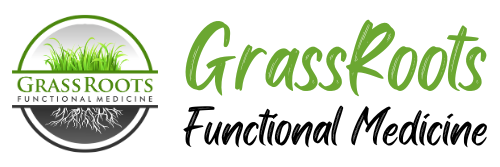High blood pressure is very common; almost half of Americans have it. Hypertension – defined as readings at or above 130/80 mmHg – increases your risk of heart disease and stroke, so it’s not something to ignore.
Most doctors simply prescribe a blood pressure lowering medication, but a review of studies showed that, while these medications do lower blood pressure, they did not reduce the risk of coronary heart disease, stroke, total cardiovascular events, or death. These medications also come along with a host of side effects.
what causes high blood pressure?
When it comes to diet, high blood pressure is conventionally blamed on salt. There’s no doubt that a diet high in processed foods, which often contain a lot of sodium, is not doing your health any favors, but blaming the salt in these foods is missing the mark. Only about 25% of people are salt sensitive, meaning that their blood pressure increases in response to increased salt intake. Most people don’t experience any changes in blood pressure related to salt intake, and some people are actually inversely salt sensitive – their blood pressure goes up when they reduce sodium!
Salt sensitivity is partly driven by genetics, but it can also be caused by high fructose consumption. The Standard American Diet is very high in fructose from high fructose corn syrup in sweetened beverages. The mechanisms are not fully understood, but fructose appears to increase sodium absorption, meaning that a level of salt intake that would normally be fine raises blood pressure when it is combined with a high fructose diet.
Another way that fructose messes up blood pressure is by increasing insulin and Metabolic Syndrome (a combination of high blood sugar, obesity, hypertension, and/or unhealthy cholesterol numbers). Insulin is a hormone that gets secreted by the pancreas in response to eating sugar, and high insulin in the blood appears to cause endothelial dysfunction (blood vessels don’t work properly), which in turn causes hypertension. Insulin does this by increasing peptide hormones that constrict blood vessels. In a closed system like the circulatory system, smaller blood vessels leads to higher blood pressure.
In short, the root cause of hypertension is usually not consuming too much salt. Instead, it is often a symptom of high insulin and Metabolic Syndrome, which is largely driven by excessive consumption of fructose, refined carbohydrates, and processed seed oils. Not only does reducing salt intake not address the root cause, but it may actually do more harm than good. Salt is important for many crucial functions in the body, including nerve conduction, cell communication, and the production of hydrochloric acid in the stomach.
So if taking a blood pressure lowering medication or lowering sodium intake is not the answer, what should you do if you have high blood pressure?
functional medicine solutions
The first step is to address insulin resistance and Metabolic Syndrome, if present, with a nutrient-dense, lower carb, Paleo style diet and exercise. Reducing sugar has been shown to reduce blood pressure.
From there, several key nutrients can provide additional benefits. RootFix BP Balance pairs a standardized extract of the Hawthorn plant with the power of magnesium taurate, L-Carnitine, and CoQ10. These nutrients support heart health, endurance, and normal blood pressure. It is an effective, unique formula designed by medical practitioners to support healthy blood pressure. Hawthorn has been traditionally used in Chinese medicine to address heart issues, and research is showing that it improves Metabolic Syndrome and hypertension.
next steps
Still struggling with blood pressure issues? Do you feel like your doctors aren’t listening to you, are discounting symptoms, and not doing comprehensive testing to get to the root of the problem? It may be time for a new approach. Work with our team of functional medicine practitioners to get comprehensive testing and a tailored plan to address your unique situation. Check out our Adaptation Programs and schedule a Free Discovery Call to reclaim the vitality you once knew.
About the Author: Dr. Seth Osgood is a Doctor of Nursing Practice, Board Certified Family Nurse Practitioner and Institute of Functional Medicine (IFM) Certified Practitioner. Dr. Osgood received his post-graduate training in Functional Medicine through the IFM and from working with Dr. Amy Myers. He has helped people from around the world improve their health utilizing a Functional Medicine approach.





